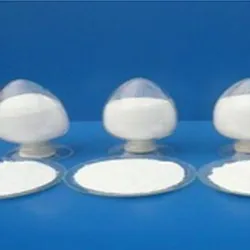
thiamine mononitrate food additive
The Role of Thiamine Mononitrate as a Food Additive
Thiamine mononitrate, also known as vitamin B1, is a water-soluble vitamin that plays a crucial role in human metabolism. As a food additive, it is primarily used to enrich various food products, ensuring that consumers receive adequate amounts of this essential nutrient. The significance of thiamine mononitrate in the food industry cannot be underestimated, especially considering the increasing prevalence of dietary deficiencies in many populations.
Thiamine is instrumental in converting carbohydrates into energy, assisting in the proper functioning of the nervous system, and promoting healthy muscle and heart function. A deficiency in this vitamin can lead to a range of health problems, including beriberi and Wernicke-Korsakoff syndrome, both of which have serious implications for neurological and cardiovascular health. Therefore, fortifying foods with thiamine mononitrate serves as a preventive measure against such deficiencies.
The addition of thiamine mononitrate to food products has become a common practice in the manufacturing of various items, including cereals, baked goods, and energy drinks. These products are often fortified with thiamine as part of a broader effort to enhance their nutritional profile. For example, many breakfast cereals are enriched with thiamine to appeal to health-conscious consumers seeking additional nutrients in their diets. This strategic inclusion not only helps to meet dietary guidelines but also supports brands in advertising their products as health-oriented.
thiamine mononitrate food additive

Regulatory agencies, such as the Food and Drug Administration (FDA) in the United States, oversee the use of food additives, including thiamine mononitrate. It is generally recognized as safe (GRAS) when used in accordance with established guidelines. This regulatory status affirms its safety for consumers when consumed within recommended levels. Furthermore, studies have indicated that thiamine mononitrate is an effective and stable form of thiamine, making it a reliable option for food manufacturers.
Thiamine mononitrate's stability also grants it a longer shelf life compared to other forms of thiamine, which is particularly advantageous for processed food items that require extended preservation
. This stability ensures that the nutritional benefits remain intact throughout the product's lifespan, thereby guaranteeing that consumers receive the intended health benefits upon consumption.Beyond its nutritional benefits, thiamine mononitrate serves aesthetic purposes in food production as well. It can enhance the color and appearance of foods, making them more appealing to consumers. As a result, this additive not only contributes to the overall health profile of food products but also plays a part in marketing and consumer satisfaction.
In conclusion, thiamine mononitrate is a valuable food additive that enhances the nutritional quality of many products. Its role in preventing vitamin B1 deficiencies is critical, especially in a world where dietary habits are often lacking in essential nutrients. By fortifying food items with thiamine mononitrate, manufacturers not only comply with health regulations but also proactively support the well-being of their consumers. As awareness of nutrition continues to grow, the importance of such additives will likely remain a key focus in the food industry.
-
nitrile-rubber-honoring-strict-production-standardsNewsAug.22,2025
-
aspartame-ingredients-honoring-food-safety-valuesNewsAug.22,2025
-
fertilizer-for-balanced-plant-nutritionNewsAug.22,2025
-
cyanide-gold-processing-with-high-purity-additivesNewsAug.22,2025
-
formic-acid-in-textile-dyeing-applicationsNewsAug.22,2025
-
aluminum-hydroxide-gel-in-skincare-productsNewsAug.22,2025
-
Regulatory Compliance for Global Mining Chemicals UseNewsAug.12,2025
Hebei Tenger Chemical Technology Co., Ltd. focuses on the chemical industry and is committed to the export service of chemical raw materials.
-

view more DiethanolisopropanolamineIn the ever-growing field of chemical solutions, diethanolisopropanolamine (DEIPA) stands out as a versatile and important compound. Due to its unique chemical structure and properties, DEIPA is of interest to various industries including construction, personal care, and agriculture. -

view more TriisopropanolamineTriisopropanolamine (TIPA) alkanol amine substance, is a kind of alcohol amine compound with amino and alcohol hydroxyl, and because of its molecules contains both amino and hydroxyl. -

view more Tetramethyl Thiuram DisulfideTetramethyl thiuram disulfide, also known as TMTD, is a white to light-yellow powder with a distinct sulfur-like odor. It is soluble in organic solvents such as benzene, acetone, and ethyl acetate, making it highly versatile for use in different formulations. TMTD is known for its excellent vulcanization acceleration properties, which makes it a key ingredient in the production of rubber products. Additionally, it acts as an effective fungicide and bactericide, making it valuable in agricultural applications. Its high purity and stability ensure consistent performance, making it a preferred choice for manufacturers across various industries.





